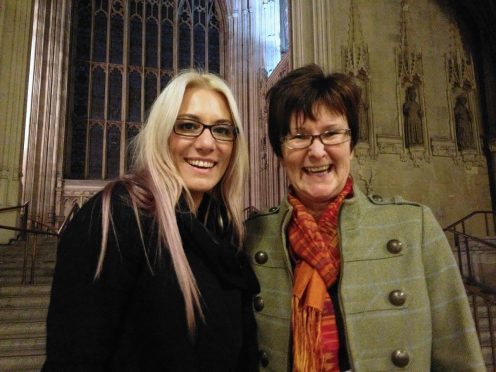A new report claims patients with brain tumours are failed at every stage – from diagnosis and treatment to research funding.
Westminster’s petitions committee has concluded that financial support for research is inadequate after listening to people affected by the disease and their families.
Among those who took part in the inquiry were Caroline Critchlow, from Orkney, and Carolyn Toshney, from Aberdeen, whose husbands were both diagnosed with brain tumours.
The investigation was triggered by a petition started by Maria Lester whose brother Stephen Realf lost his life as a result of a brain tumour, the biggest cancer killer of people under 40.
It now has more than 120,000 signatures and will be debated at parliament.
Today’s report calls on the UK Government to give a clear statement of whether it believes current levels of funding are adequate and – if not – asks what it will do to ensure it increases.
It also recommends measures be taken to increase awareness among health professionals of the symptoms of brain tumours and urges the government to take action to correct what it identifies as decades of underfunding.
Committee chairwoman, Labour MP Helen Jones, said: “The evidence was clear – something must be done to improve outcomes for patients, and barriers to research must be removed.
“This report was initiated by the public, it is a vitally important issue and I hope the government takes our recommendations seriously.”
Ms Lester, whose petition has the support of charity Brain Tumour Research, warned the government not to “turn a blind eye”, but grasp the opportunity to become a world leader.
She added: “The evidence makes for powerful reading, and I hope that it will pave the way for fast and meaningful action.
“It may be too late for my brother Stephen, but it is not too late to save others from this cruel disease.”
The UK Government’s Life Sciences Minister George Freeman insisted early diagnosis and treatment of cancer, including brain tumours, was a priority for the Tories.
He added: “The government invests more than £1billion every year into health research and works closely with patients, charities and our world leading life sciences industry to support further research into this devastating disease.”
